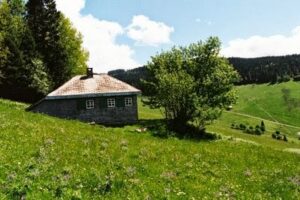
The path and being
Even if I have read Heidegger, few have read at least in its entirety O ser e o tempo, or another work that I consider important The origin of the work of art, and the most controversial (at least currently) that is Letters on Humanism, not only because Sloterdijk rejected it, but because thinking about what humanism is today is the most important task in trying to save civilization.
entirety O ser e o tempo, or another work that I consider important The origin of the work of art, and the most controversial (at least currently) that is Letters on Humanism, not only because Sloterdijk rejected it, but because thinking about what humanism is today is the most important task in trying to save civilization.
Just look around, from the pandemic to war, the extreme and sometimes irrational political politicization, and not only all of this, but especially the sharp look and thinking that saw beyond appearances.
There are two good biographies of Heidegger, one by Hugo Ott, which I read in pieces and another that I read and passed on to so many friends, which is Rudiger Safranski’s, both deserve to be read and are not Heidegger.
On the way through the forest, the time that Heidegger spent around the fire, where he smoked his pipe with the peasants and woodsmen of the Black Forest, it is said that in silence, perhaps it says more about Heidegger than his philosophy, says something of the poetry he did not write. , but lived.
It was there in an interview that Heidegger gave to Der Spiegel that he said (not in a religious tone but in a tone of disbelief) he said the phrase: “Only a God can save us”, and he was right.
The rustic and simple hut that Heidegger inhabited during the time he wrote Being and Time, was also his refuge in the time of the Forest Path, and of a short little-known writing that “Creative Landscape: why we perpass in the province”, that it is not a compliment to the province, but the need for a contemplation that urban life had lost, a path similar to the one that a younger philosopher Byung-Chul Han wrote in The Society of Fatigue.
It is written in “Creative Landscape”: “The city dweller thinks he “mingles with the people” as soon as he deigns to have a long conversation with a peasant. At night, on a break from work, when I sit by the fire with the peasants, or at the table in the Herrgott swinkel, then most of the time we don’t say anything. We smoke our pipes in silence”, the note clarifies that Herrgottswinkel is an establishment in the countryside.
So it’s not isolation or provincialism, but a pause to get back on track.
HEIDEGGER, M. (2014) Paisagem Criativa: Por que permanecemos na província , in: Idéia. Campinas (SP)|n. 9.









